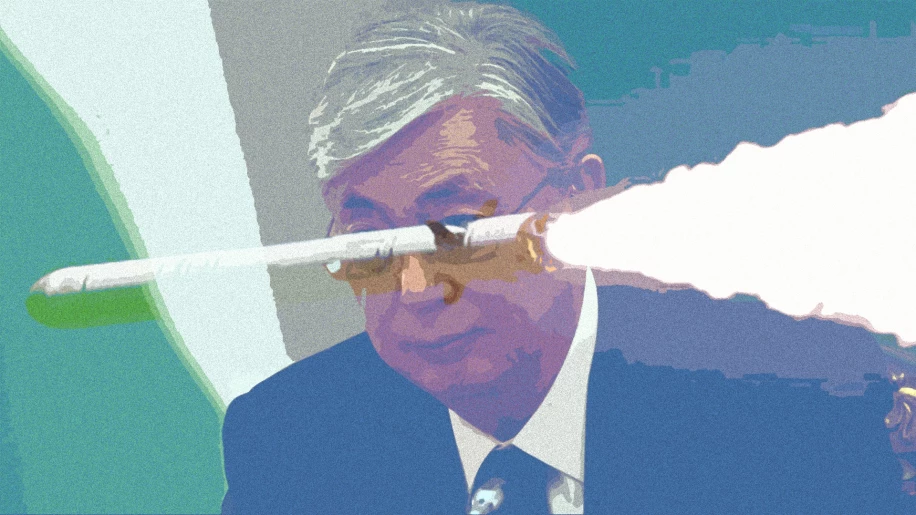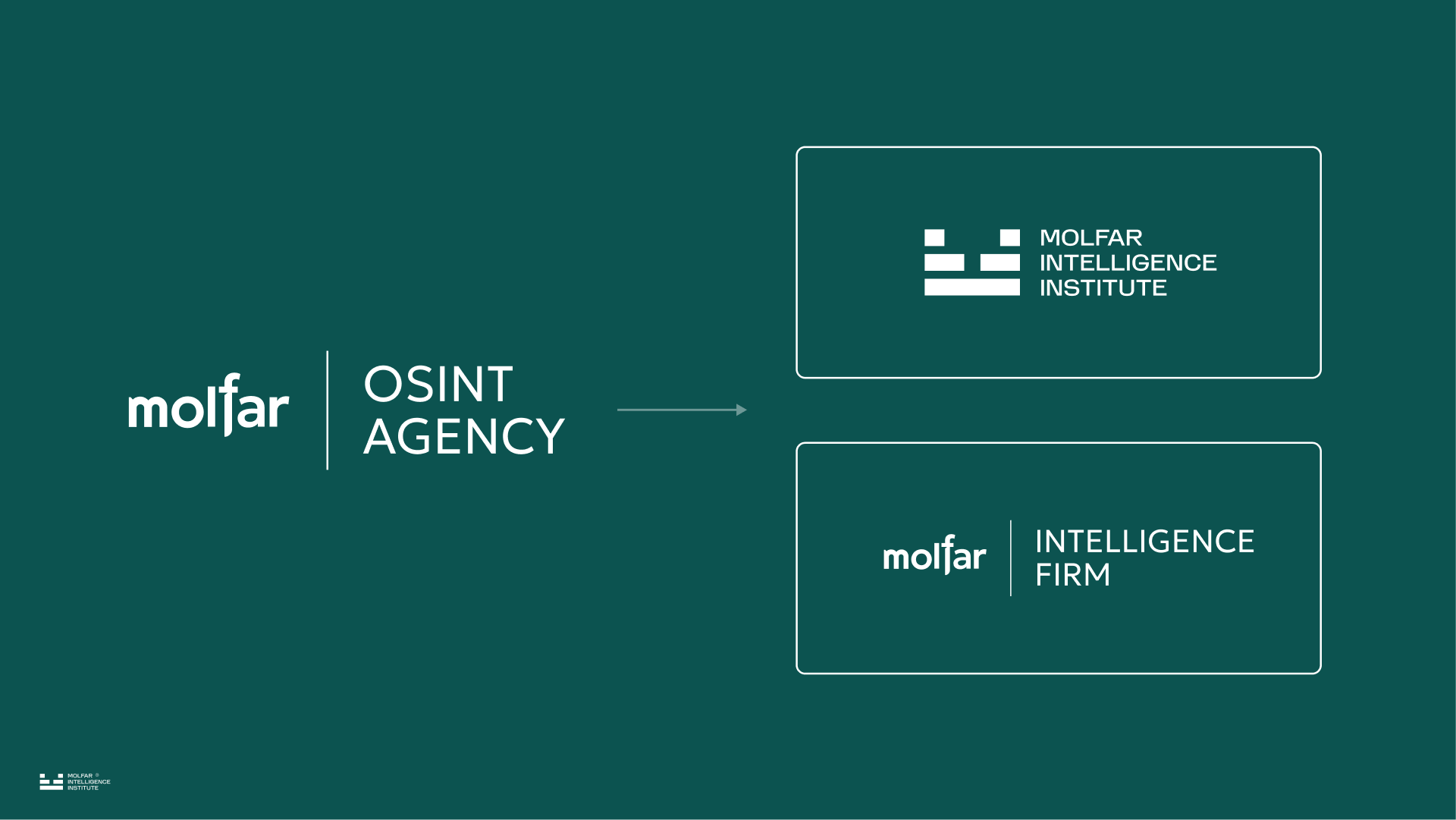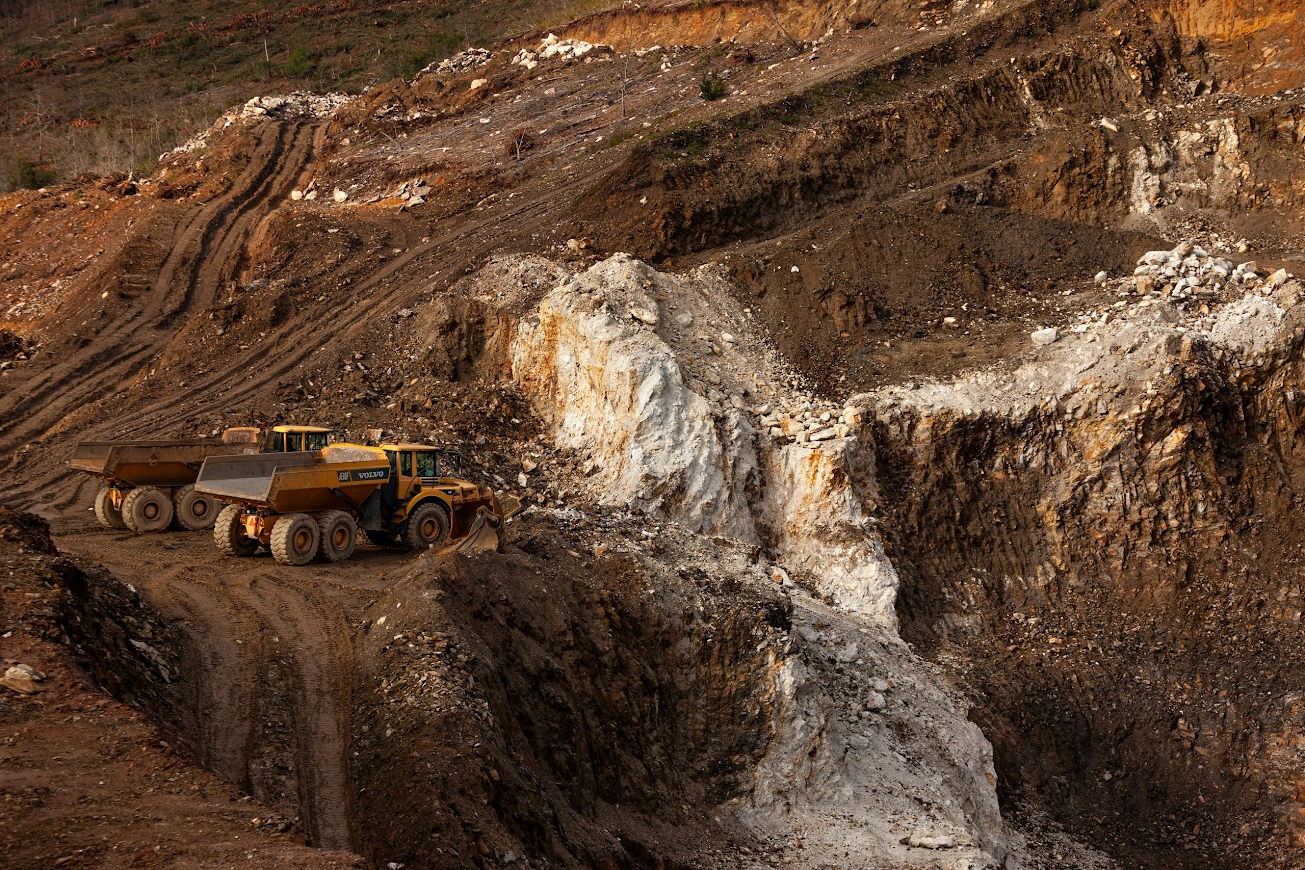Background of the investigation: On September 20, 2022, the Russian media Kommersant published news that Kazakhstan was detaining Russian trucks with goods from the EU. This is a very interesting situation, if you know the context of the event. On the first day of the summer of 2022, Kazakhstan began to pursue a policy of "good will towards the Russian Federation and the Republic of Belarus". The "good will" consisted in the fact that the government of Kazakhstan temporarily suspended the ban on hooking containers to Russian and Belarusian tractors until January 1, 2023. The government of Kazakhstan took such a step in response to a similar cancellation of the ban on truck coupling by the Russian Federation.
All of a sudden: Kazakhstan at the official level stops the trucks of Russian carriers, detains the drivers, takes away their personal documents, and demands permission documents for cargo issued by a European carrier. Since Russian drivers do not have such documents, and such an exchange of documents is not even provided for, this means only one thing: the government of Kazakhstan deliberately stopped the transit of trucks.
Why? What exactly were the goods transported in the trucks, and why did the government of Kazakhstan go to a confrontation with the Russian Federation over these goods? We tell in our investigation.
Mysterious goods and bloody Russian money: what products do the Russian Federation import through Kazakhstan?
Molfar sources said the trucks stuck at the border may have been filled with dual-use goods. That is, such goods that can be used in whole or in part for military purposes. According to unverified information, Russian transporters mostly imported household appliances and electrical equipment through Kazakhstan, parts of which are needed to create mechanisms for cruise missiles and other high-tech heavy weapons.
The scheme worked as follows:
- payment for goods in Europe was made through a specific Kazakhstan legal entity;
- payment for the goods involved their shipment from the European warehouse to the border with Belarus;
- after crossing the border, the cargo was hooked onto Russian or Belarusian trucks;
- after that, the goods should go to Kazakhstan;
- but went to the Russian Federation.
This is possible because Kazakhstan is a member of the Eurasian Economic Union (EEU). Therefore, goods for which duty has been paid at the rates of the Unified Customs Tariff of the EAEU when imported into Kazakhstan can be freely moved through the unified customs territory of the EAEU (Armenia, Belarus, Kazakhstan, Kyrgyzstan and Russia) without repeated customs clearance.
However, you can only trust insiders at the level of a hypothesis. Therefore, we decided to check this information and conduct our own investigation. In one sentence, the result sounds like this: insider information has been confirmed. Next, we tell all the details.
Increasing supply from Kazakhstan to Russia
In May 2022, in Russian chain markets appeared Samsung phones intended for the Kazakhstani market. Also, in June, the Samsung TV factory in Kaluga partially resumed work, but the manufactured products will only be exported to Kazakhstan, Kyrgyzstan, Uzbekistan and other countries.
In July in chain stores, the "M.Video", re:Store, Wildberries and "Svyaznoy" appeared MacBooks imported from Kazakhstan through parallel import.
That is, the conclusion is elementary: sanctioned goods began to appear in Russian stores. If they are in the segment of ordinary users, then they are also in the segment of the military sector. For Russia under sanctions, which is waging an aggressive war against Ukraine, this is the most urgent issue. Because all the high-tech weapons of the aggressor country have Western technological components in their composition.
We investigated the growth of certain groups of goods that Russia imports through Kazakhstan. These goods can be used for equipment and re-equipment of military vehicles – this is reported by Washington Post journalists.
"U.S.-led sanctions are forcing Russia to use computer chips from dishwashers and refrigerators in some military equipment, Commerce Secretary Gina Raimondo said".
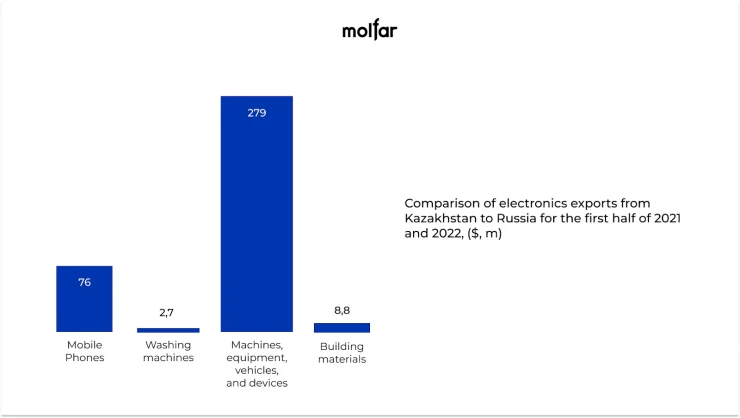
Of course, these are far from all the Russians' "gains", in addition to these goods, they also import specific equipment through Kazakhstan. Which, most likely, will be used exclusively for the needs of the defense segment of the industry.
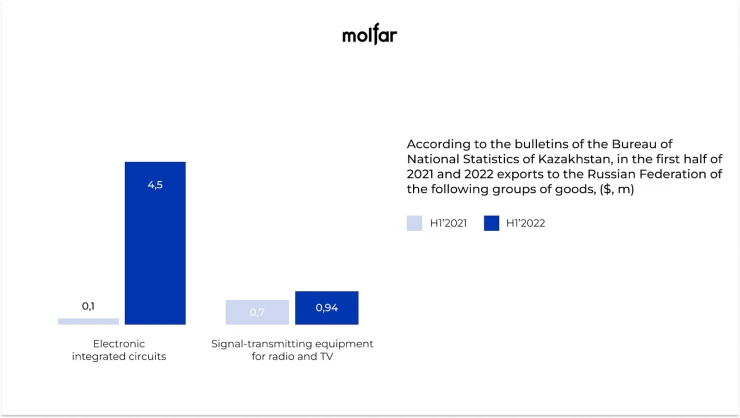
The increase in exports of electronic integrated circuits from $0.1m to $4.5m means a 45-fold increase. In the conditions of the escalation of the conflict on the territory of Ukraine, it is impossible to turn a blind eye to such parallel import schemes. This is a direct circumvention of sanctions in order to continue the war and the genocide of the Ukrainian people.
At the same time, we would like to draw attention to the fact that Russia is an important trade partner of Kazakhstan. In his article for The National Interest, the President of Kazakhstan, Kassym-Jomart Tokayev wrote that Kazakhstan and Russia support special relations of bilateral cooperation, but at the same time, Kazakhstan recognizes the territorial integrity of Ukraine, as do the vast majority of countries in the world.
If we break it down into simple components, we will have only two points:
- Kazakhstan depends on the Russian Federation in the field of trade relations;
- Kazakhstan does not want to have anything to do with Russia's war against Ukraine.
These two statements are also well illustrated by the following graphs.
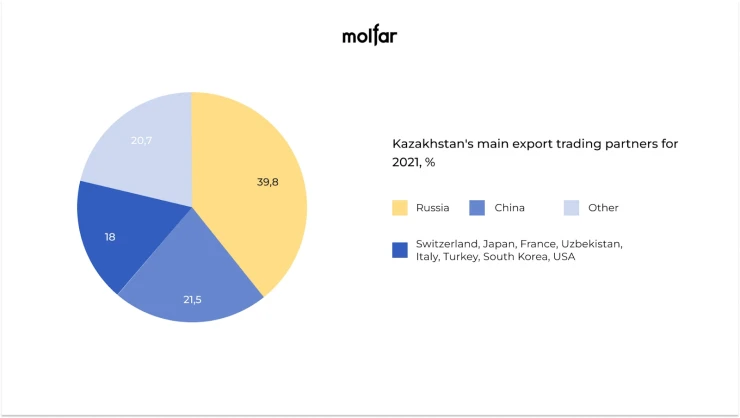
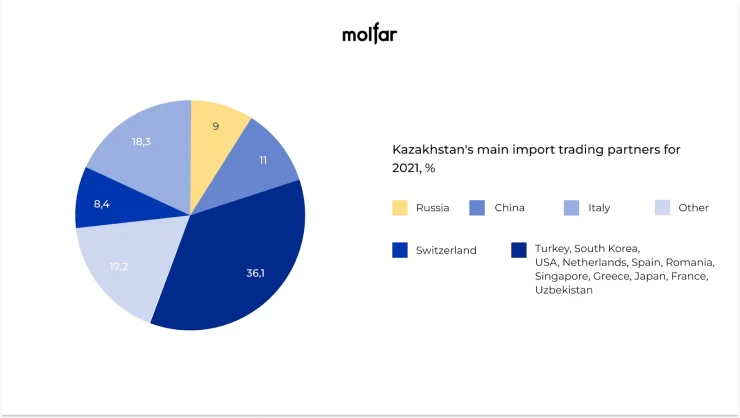
That is, Kazakhstan receives almost 40% of goods from the Russian Federation, and the share of goods from Kazakhstan in the Russian Federation is only 9%. Based on this, we can understand the policy of the Kazakhstan government: they do not want the image of their country to be used by Russia to achieve its fascist military goals. That is why they stopped the trucks at the border.
However, we also know about the commercial and economic dependence of Kazakhstan on Russia, so it is logical to assume that the government of Kazakhstan will not engage in further confrontation with the government of the Russian Federation and, after some time, will give up its principles to preserve the welfare of the country.
For Ukraine, this means the following: at the level of the military-political leadership, it is necessary to conduct negotiations with representatives of Ukraine's allied countries to block parallel import schemes through Kazakhstan, which are used by Russia to circumvent sanctions.
One of the ways to block schemes can be sanctions against individual legal entities. The Molfar team investigated Kazakhstani legal entities through which Russia imported the largest number of goods to its territory.
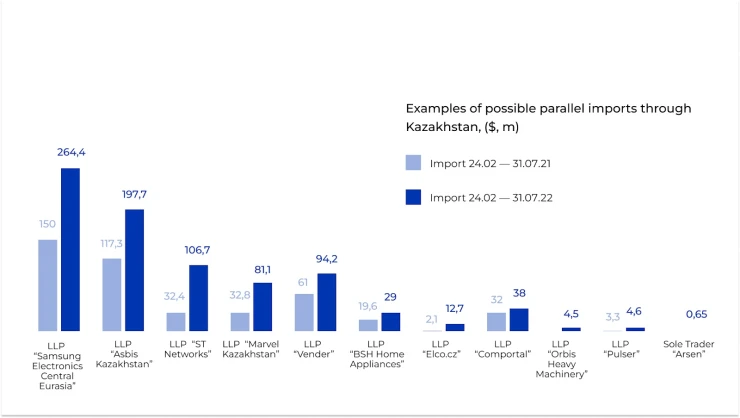
At the same time, the introduction of sanctions against certain legal entities is only a temporary solution that complicates the process of parallel import, but does not solve the problem. No one prevents Russia from opening new legal entities in Kazakhstan and continuing the parallel import of sanctioned goods. Therefore, the political forces of the allied countries of Ukraine, in cooperation with the military-political leadership of Ukraine, should look for complex ways of countering the Russian "circumvention schemes".
You can find out which people own the companies shown in the last graph by following this link. The full version of the investigation also provides more detailed information obtained during the investigation of parallel import schemes into the Russian Federation via Kazakhstan.
Conclusions: Russia is interested in continuing the war
The Molfar team hopes very much that after this investigation, missile attacks on Ukraine will decrease. And that the Russians will receive another strong response from Ukraine and Western partners, which will significantly complicate or even make impossible the further creation of high-tech heavy long-range weapons. After all, all Russian weapons are assembled from Western components. It is quite realistic to leave Russia without weapons. For this, it is not even necessary to introduce troops into its territory, only to correctly block the supply of goods and timely expose schemes for circumventing sanctions.
For further information or formal comment on the investigation, please email us at: [email protected]

